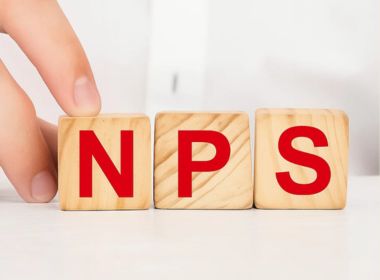Search Suggestions
- Gold Loan
- Money Transfer
- Mutual Funds

How to Transfer Shares From One Demat Account to Another
With Non-Banking Financial Companies like Muthoot Finance offering easy access to shares and stock market investments, more and more people are opening new Demat accounts to begin trading. A Demat account forms the basis of any share transaction and is operated frequently during the buying and selling of shares in the stock market. The buying of shares means that our account is credited, whereas when one sells the shares, the same is debited from the account.
Table of Content
- The Process of Share Transfer
- Offline Transfer of Shares
- Online Transfer of Shares
- Reasons for Transfer of Shares
Trading shares through a Demat account is just like using your normal bank account to make a transaction. You can easily transfer shares from a Demat account to another. However, the difference here is that during the transfer of shares, the ownership remains with the person who is performing the transaction, which means that there will be no tax implications.
While a lot of people deal in shares, they barely scratch the surface when it comes to understanding how to transfer shares from one Demat account to another, especially the ones newly introduced to the stock market. While you can always take assistance from the customer support team at Muthoot Finance for help regarding share transfer, it is always a good idea to have basic knowledge of the process.
The Process of Share Transfer
There are two different types of share transfers based on the two national depositories in India: NSDL (National Security Depository Limited) and CDSL (Central Depository Services Limited). These include:
- Intra-Depository Transfer
- Inter-Depository Transfer
Further, all shares can be transferred in either offline or online mode. Both the processes are explained below.
Offline Transfer of Shares
In case of a manual offline share transfer, the account holder requires a Debit Instruction Slip or booklet to complete the transaction. The same is provided by their Depository Participant (DP).
Step 1: Fill in the following details in the DIS slip:
Name and ISIN number: Mention the name of the share(s) that you wish to transfer along with the ISIN number. ISIN or the International Securities Identification Number is a 12 digit code required to identify securities like funds, stocks, debts, equities, bonds and shares.
Target client ID: Mention the ID of the Demat account to which you wish to transfer the shares. It is a 16 character code that identifies the account number and ID of the depository participant.
Step 2: After correctly entering the required information, select the type of transmission of shares. It could either be an intra-depository/off-market transfer or an inter-depository transfer. However, be extra careful while selecting the type of transfer to ensure a successful transaction. This completes the form filling for share transfer.
Step 3: Submit the filled and signed DIS slip to your existing broker and collect an acknowledgement slip for the same. Similar to what we do while manually transferring funds from our bank account.
It takes around 3-5 business days for the broker to transfer the intended shares from the old Demat account to the new one. Please note that this process may charge you a menial fee, which varies for different brokers.
Online Transfer of Shares
Online mode is considered to be one of the easiest ways for the transfer and transmission of shares. It saves a lot of time and effort by eliminating the need to fill physical share transfer forms or interact with the broker.
Here are steps on how to transfer shares from one Demat account to another through the e-transfer facility.
Step 1: Visit the website of NSDL or CDSL to register online.
Step 2: Carefully fill the online registration form and take a printout of the same.
Step 3: Once successfully printed, the form will be automatically transferred to the Demat account holder’s DP.
Step 4: The DP will further complete the verification process and send a password to the registered email id of the account holder.
Step 5: This password can be used to log in to the share transfer dashboard with the chosen depository service.
Step 6: Login and begin transferring the intended shares from the comfort of your home.
Tax Implications
There are no added tax liabilities during the transfer and transmission of shares from the Demat account to another until the account holder is the same. However, in case transferring the ownership of shares to another person, one has to mention a valid reason. Here the tax liability will be from the date of the original purchase. However, subject to a waiver, if the transfer is a gift deed that does not exceed the said limit.
It may be noted that share transfers to family members like spouse, father, mother, or any of the siblings are exempted from tax liabilities. However, proof of their relationship will have to be submitted.
Suggested Read: Understanding Tax Deductions: What You Can and Can't Claim
Reasons for Transfer of Shares
There could be numerous reasons why one wants to transfer shares. These include,
1. Reduction in brokerage
Reduction in brokerage fees is one of the major reasons that translates into transferring shares to a new Demat account.
2. Better services
Numerous people switch to Muthoot Finance for a Demat account for the services being offered. Trading on a robust trading platform with enhanced securities, instead of the present platform they are using is another reason why people need to transfer their shares from one Demat account to another.
Suggested Read: Difference between Mutual Funds Vs Stocks
3. Consolidation of holdings
A brokerage fee is charged for every Demat account, regardless of the ownership. Shifting all your shareholdings to a consolidated account at Muthoot Finance, with all your securities in one place can help you save a few extra bucks.
4. Securities management
Shares are considered as a mode of investment and hence categorized based on various responsibilities like marriage or retirement planning. This may raise the requirement of having multiple Demat accounts for different financial goals.
Transferring shares from one Demat account to another is simple and easy once you have the right steps ingrained.
CATEGORIES
OUR SERVICES
-

Credit Score
-

Gold Loan
-

Personal Loan
-

Cibil Score
-

Vehicle Loan
-

Small Business Loan
-

Money Transfer
-

Insurance
-

Mutual Funds
-

SME Loan
-

Corporate Loan
-

NCD
-

PAN Card
-

NPS
-

Custom Offers
-

Digital & Cashless
-

Milligram Rewards
-

Bank Mapping
-

Housing Finance
-

#Big Business Loan
-

#Gold Loan Mela
-

#Kholiye Khushiyon Ki Tijori
-

#Gold Loan At Home
-

#Sunherisoch
RECENT POSTS

What is a Digital Wallet: Meaning, Types, Examples & Benefits
Know More
What is Refinancing: Meaning, Types, Benefits & Examples
Know More
What Is a Debt Trap? Meaning, Causes & How to Avoid It
Know More
Gold Price Forecast 2026: Will Gold Prices Rise or Fall?
Know More
What Is Capital Gains Tax in India? Meaning, Types & Tax Rates
Know More
Best Index Funds to Invest in India in 2026
Know More
Understanding Gold Bees: How it Works, Net Asset Value, Returns and More
Know More
Multi Cap and Flexi Cap Mutual Funds: How Are They Different?
Know More
Online Personal Loan vs. Offline Personal Loan - Which Is Better for You?
Know More
10 Tips to Improve Chances of Personal Loan Approval
Know MoreFIN SHORTS

What Is a Gold Loan and Who Should Consider It?
Know More
How Does a Gold Loan Work? A Simple Step-by-Step Guide
Know More
How to Link Your Mobile Number with PAN Card Step-by-Step Guide
Know More
Is a PAN Card Mandatory for a Gold Loan? Rules Explained
Know More
Can You Have Multiple Personal Loans at the Same Time?
Know More
Why Is Gold Sustaining Near ₹1.5 Lakh? Key Reasons Explained
Know More
The Best 7 SIF Funds of 2026: A Better Way to Invest
Know More
Gold Price Hits ₹1,40,000: How It Impacts Gold Loan Amounts
Know More
How to Check Loan Number: Step-by-Step Process
Know More
How to Open an SIP Account: Online and Offline Process
Know More
How Do I Apply for MSME Certification Online in India?
Know More
7 Important Reasons to Choose Hallmark Gold When Buying Jewellery
Know More- South +91 99469 01212
- North 1800 313 1212





